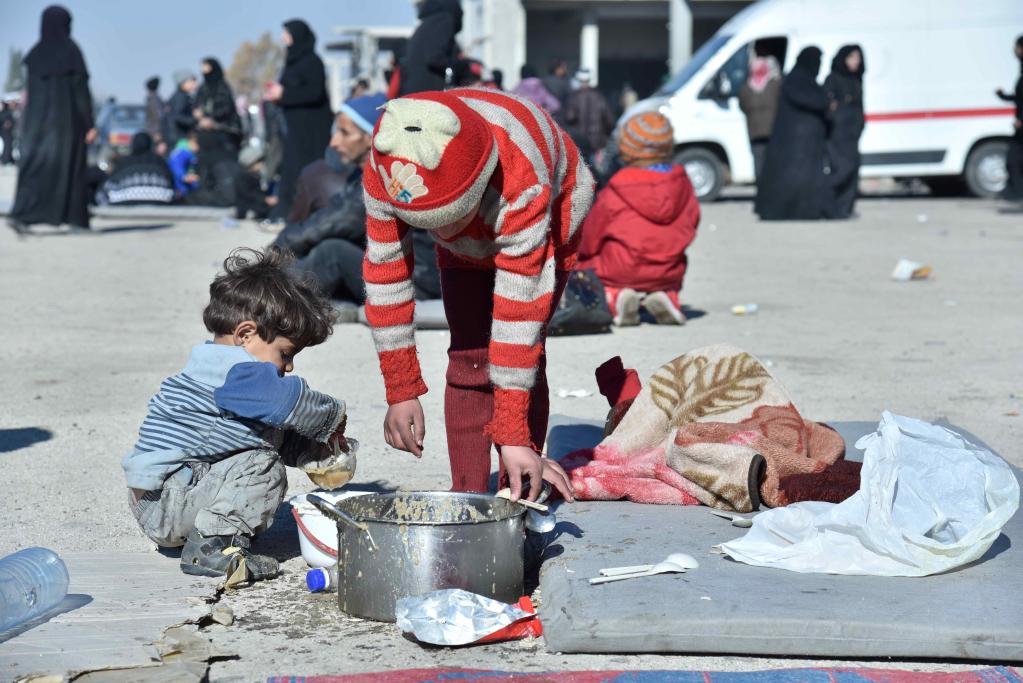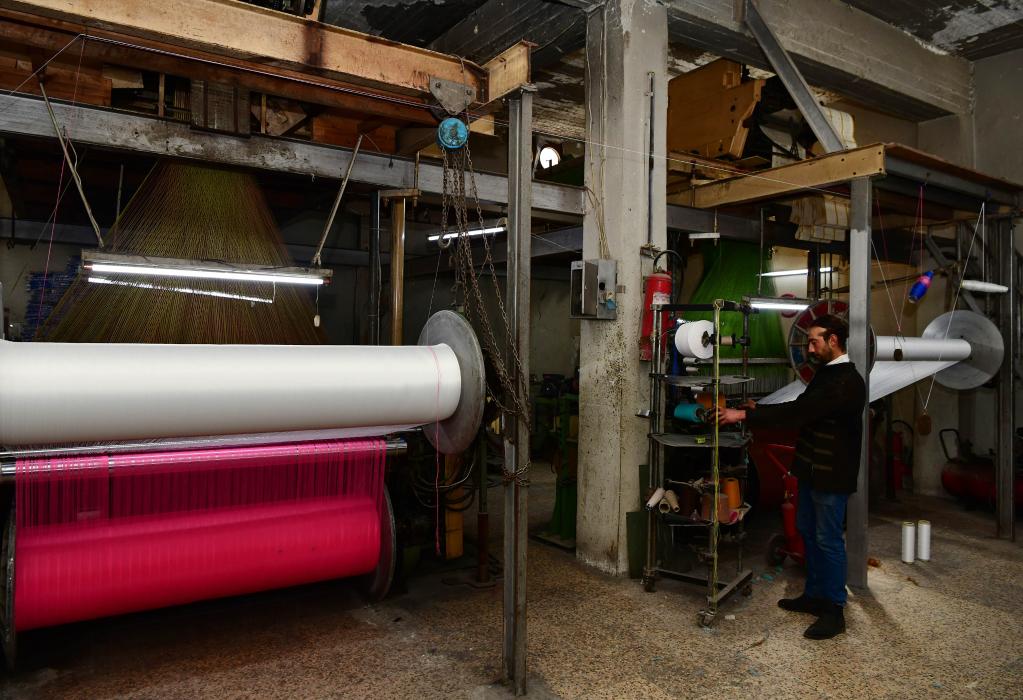Xinhua News Agency, Damascus, August 16 (Reporter Wang Jian) On a road leading to the border in Hasakeh province in the northeast of Syria, the tanker trucks of American troops lined up in a row, and there was no end in sight. These military vehicles loaded with oil stolen from Syria crossed the border into Iraq in turn and disappeared in the distance. At the same time, residents living in Damascus, the capital of Syria, have been waiting for hours in front of the gas station, and there is no end in sight for the vehicles waiting in line to refuel. This scene has become commonplace in Syria.
"Stealing oil" is one of the numerous crimes committed by the United States in the Middle East. In order to maintain hegemony and seek personal gain, the United States frequently plundered resources, created conflicts and imposed arbitrary sanctions in the Middle East, seriously damaging the right to life, health and development of local people and creating a profound humanitarian disaster.
A blatant plunder
The Syrian Ministry of Petroleum and Mineral Resources recently issued a statement saying that,In the first half of this year, the average daily output of Syrian oil was 80,300 barrels, of which more than 80% and about 66,000 barrels were plundered by "the US military and its supporting armed forces"..
The Syrian News Agency reported on the 13th that the U.S. military sent a convoy of 89 tankers that day to transfer the oil stolen in Syria to bases in Iraq through illegal border crossings. On the 11th, 144 vehicles were transported for stealing oil.

Video screenshot
The Syrian crisis broke out in 2011. Since 2014, the United States has deployed troops in eastern and northeastern Syria. In recent years, the Syrian government has repeatedly accused the US military of stealing and transporting oil in northeastern Syria. Bassam Touma, Syrian minister of oil and mineral resources, said,The United States and its allies plundered Syrian oil wealth like pirates.. Mohammed Omari, an expert on Syrian political issues, said that looting natural resources such as oil is one of the ugliest acts of the United States in Syria.
In addition to oil, the United States plundered food from Syria. Hasakeh province in the northeast of Syria is an oil depot and a granary, and 60% to 70% of Syria’s grain output is concentrated in this province. According to local media reports,The US military has smuggled or burned Syrian wheat many times..
Syria used to be a grain exporter, but now it faces a grain shortage and needs to rely on imports to meet domestic demand. According to the World Food Programme, about 12.4 million people in Syria are currently unable to obtain food security, which is the worst situation on record.
Horrible atrocities
Before the outbreak of the Syrian crisis, the country had a population of over 22 million. According to data released by the United Nations,The US military intervention has caused at least 350,000 people in Syria to lose their lives, more than 12 million people have been displaced, and 14 million civilians are in urgent need of humanitarian assistance..
Between 2016 and 2019 alone, Syria recorded 3,833 civilians directly killed by the bombing of the US-led Coalition forces, half of whom were women and children.

On December 9, 2016, at the Kipling temporary resettlement site in the northern Syrian city of Aleppo, children evacuated from the anti-government armed control area were eating. Xinhua News Agency reporter Yang Yushe
Syrian political analyst Usama Danula said that the displacement and casualties of civilians caused by air strikes is one of the crimes of human rights violations committed by the United States in Syria, but the United States only calls it "collateral losses".
Arbitrary and unreasonable sanctions
In addition to military intervention, the United States has long imposed harsh unilateral sanctions on Syria and other Middle Eastern countries. In 2019, the United States launched the so-called "Caesar Act", which set many obstacles for foreign investors to invest and build in Syria. Since 1979, the United States has imposed various unilateral sanctions on Iran and other countries for a long time. In 1996, it threw out the so-called "D’Amato Act" to prohibit foreign companies from investing in Iran and Libyan energy industries.

On March 7, a Syrian textile worker worked in a factory building in Qatar Industrial Zone in Aleppo. Xinhua News Agency (photo by Amar Safar Jailanai)
Affected by sanctions, the currencies of these Middle Eastern countries have depreciated, prices have soared, local production and business activities have been affected, foreign investment projects have been stranded, and the process of economic development and reconstruction is facing many difficulties. Chaher Abeidy, a political analyst at Anbar University in Iraq, said that American hegemony will often cause comprehensive damage to local economy, culture and other fields.
By waging war, imposing unilateral sanctions and plundering wealth, the true face of the United States pursuing hegemony in the name of "freedom, democracy and human rights" has been recognized by the international community, including the Middle East countries. (Participating in reporters: Fan Shuai Shuai, Dong Yalei, Liu Weijian, Yao Bing; Clip: indifferent; Editor: Zhu Ruiqing, Liu Zan, Zhao Zhuoyun, Wang Kewen, Ma Xiaoyan)
关于作者